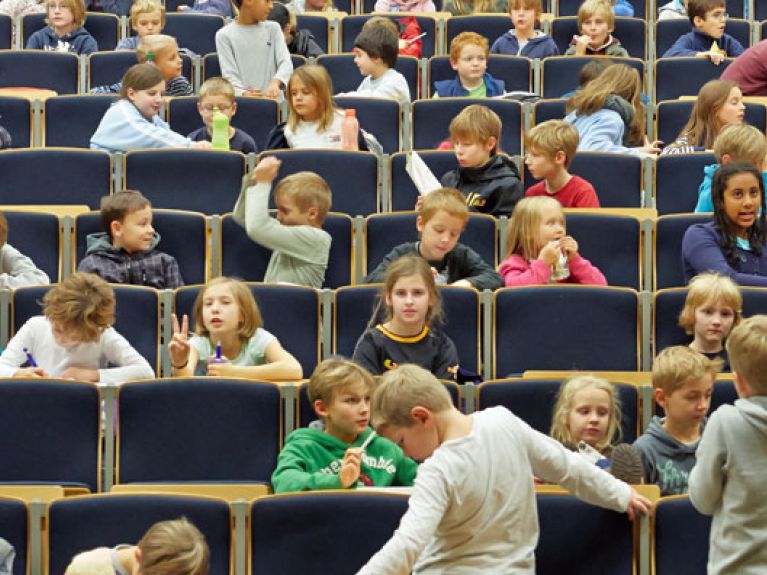Children’s universities in Germany
More and more German universities are offering lectures for children to arouse their curiosity in new subjects.

“How are criminals brought to justice?”, “Blind as a bat or eagle-eyed – how do we see?” or “Why is sport good for our bodies?”. The professors from the faculties of forensic medicine, biology and sports science who gave lectures on these subjects recently found themselves facing a rather specialized audience, one whose members listened particularly attentively, showed particular interest, and asked particularly tricky questions – children.
More and more German universities are picking up on the idea of a university for children. The lectures and courses on offer tend to be very well-attended, and in some cases are even oversubscribed. The university lecturers explain the world to their junior students in a child-friendly manner, are keen to arouse their curiosity in science and research, and wish to dispel any fears children may have about universities as institutions. Tübingen University was the first to launch the children’s university experiment back in 2002. As a rule, the special courses on offer to children are free of charge and tend to be aimed at pupils in years two to six.
In Munich and Hanover, children are always invited to attend different universities within the respective city. At the renowned Humboldt-Universität in Berlin, as at other universities for children, it is standard practice for each young student to be given a booklet in which they record all the courses and lectures they have attended. The Babelsberg children’s film university in Potsdam is a special project and the first of its kind in Europe. It gives 80 children between the ages of nine and twelve the opportunity to get a taste of university life while at the same time learning a great deal about making films. Lectures deal with subjects such as writing a screenplay or sound design.
The young students are generally amused by the fact that they are not supposed to applaud at the end of a lecture but to rap on the tables with their knuckles– and by the fact that many lectures are marked “c.t.” (cum tempore), which means they start 15 minutes late. That’s not something they are familiar with from school.

